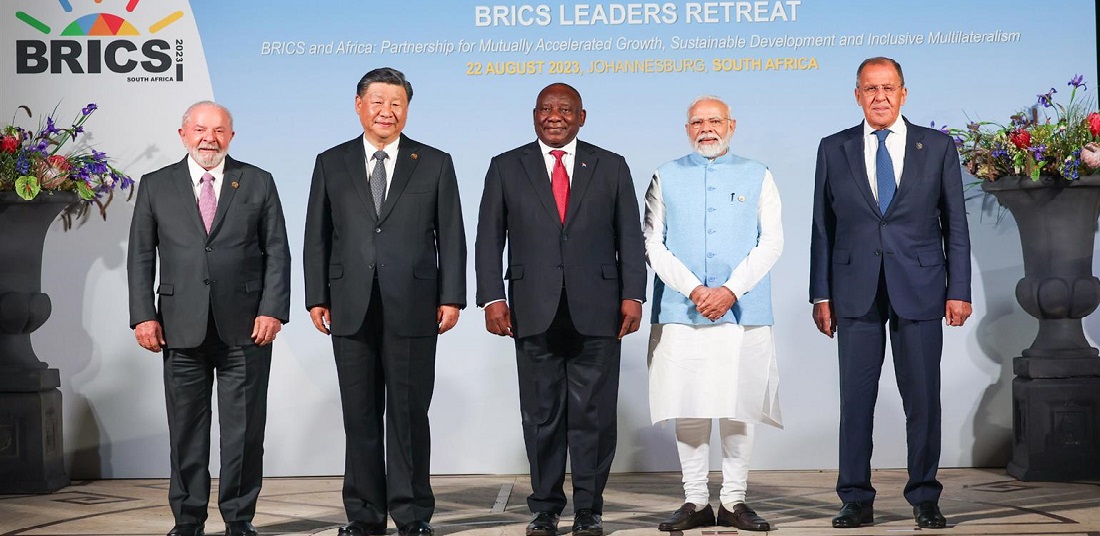
More countries in BRICS could boost investment, trade
Aug, 29, 2023 Posted by Gabriel MalheirosWeek 202336
The entry of six new nations into BRICS, the group of developing countries currently formed by Brazil, Russia, India, China, and South Africa, could expand the trade flow between the participants and attract investment, including to Brazil. However, challenges affecting the growth of trade relations, such as double taxation, still need to be overcome.
In 2001, North American economist Jim O´Neill created the term BRIC to reference nations with high territorial extension, population, and growth potential. This definition gave rise, in 2009, to the first summit of the group, which, in 2010, added South Africa to the quartet.
In 2015, the New Development Bank (NBD) was created, also known as the “BRICS bank,” which funds projects of countries, including non-members. At the latest summit that ended on August 25, six new members were accepted to the group: the Arab countries Saudi Arabia, the United Arab Emirates, and Egypt, and non-Arab countries Argentina, Ethiopia, and Iran.
This new configuration could bring new and more business to all members, including Brazil. But old challenges need to be overcome.
Founding partner of BMJ Consultores Associados and former Secretary of Foreign Trade of Brazil (2007-2011), Welber Barral believes the expansion of BRICS could bring investment to Brazil and increase the trade flow and contacts between the countries at the diplomatic level.
“Brazil already receives significant investments from sovereign funds from the UAE, such as Mubadala, and some Saudi funds. It would be necessary to progress the double taxation agreement and investment agreements to give more guarantees to the funds since they have to be based, by their compliance rules, on international rating (which rates the capacity of a country or company to pay its financial commitments) to make the investments. But it is a crucial step to allow precisely this contact at the diplomatic level,” said Barral.
The secretary-general and CEO of the Arab Brazilian Chamber of Commerce (ABCC), Tamer Mansour, sees different opportunities for Brazil in the relationship with the group’s Arab partners: “There will indeed be a change in the trade balance between these countries,” noting with the expansion, the BRICS becomes a group with 3.6 billion inhabitants and a Gross Domestic Product (GDP) of USD 29.1 billion.
“Saudi Arabia, as a significant oil exporter, could be one of the most influential powers within BRICS. We have always seen the UAE as a re-export hub. Now, even more so, in addition to its arrival, it will also contribute to the BRICS bank,” said Mansour, who also recognizes the role of the UAE as major investors.
As an example of the re-export of products, he mentioned soybeans processed and transformed into soybean oil in the UAE. This oil is then sold to other markets. Another example is the processing of fresh poultry into processed protein. “It’s about adding value to products,” he said.
“Concerning Egypt, it will bring much greater cooperation. It represents security for Brazil, Russia, and China to look to Africa because Egypt is the gateway to Africa. The country is facing challenges with its currency. BRICS opens the path to pay for purchases with the national currency (Egyptian pound). It is an opportunity for both Egypt and Argentina,” he assessed. “The importance of Egypt’s entry goes beyond just looking from one country to another,” he added.
Barral assessed the expansion of BRICS brings other benefits to its participants: It allows them to solve problems among themselves, such as sanitary barriers and obtaining certifications for exports, which contributes to expanding trade. He recalls Egypt and Mercosur (a common market that includes Brazil, Uruguay, Argentina, and Paraguay) already have a free trade agreement, which does not influence an eventual tariff reduction. “Where there can be an evolution is precisely in investments and, eventually, integration of productive chains. So, this could be brought by BRICS as it facilitates, for instance, financing for bilateral projects through the NDB,” he said.
Giving voice to the global south
Looking at the agreement from a diplomatic standpoint, Barral and Mansour believe bringing new emerging countries into the group is a way for the BRICS to gain robustness and influence on the international scene.
“About the evolution of BRICS, I’d like to remember it is an attempt to give a voice to the main powers of the global south so they don’t just fall behind developed countries,” said Barral.
“I see global confidence in the bloc. If it was viewed with distrust, it is now seen as capable of economically competing with other groups. It starts to change the international view of the (BRICS) countries,” said Mansour.
Source: Anba
To read the original text, see: https://anba.com.br/en/more-countries-in-brics-could-boost-investment-trade/
-
Ports and Terminals
Feb, 08, 2021
0
Port of Itapoá handled 440,000 containers in 2020
-
Meat
Aug, 28, 2019
0
ABIEC repudiates illegal deforestation
-
Grains
Jan, 09, 2020
0
Consultants predict corn crop production will be 1.3% down
-
Ports and Terminals
Jan, 24, 2024
0
Port of Maceió qualified for Brazil’s Federal Privatization Program

